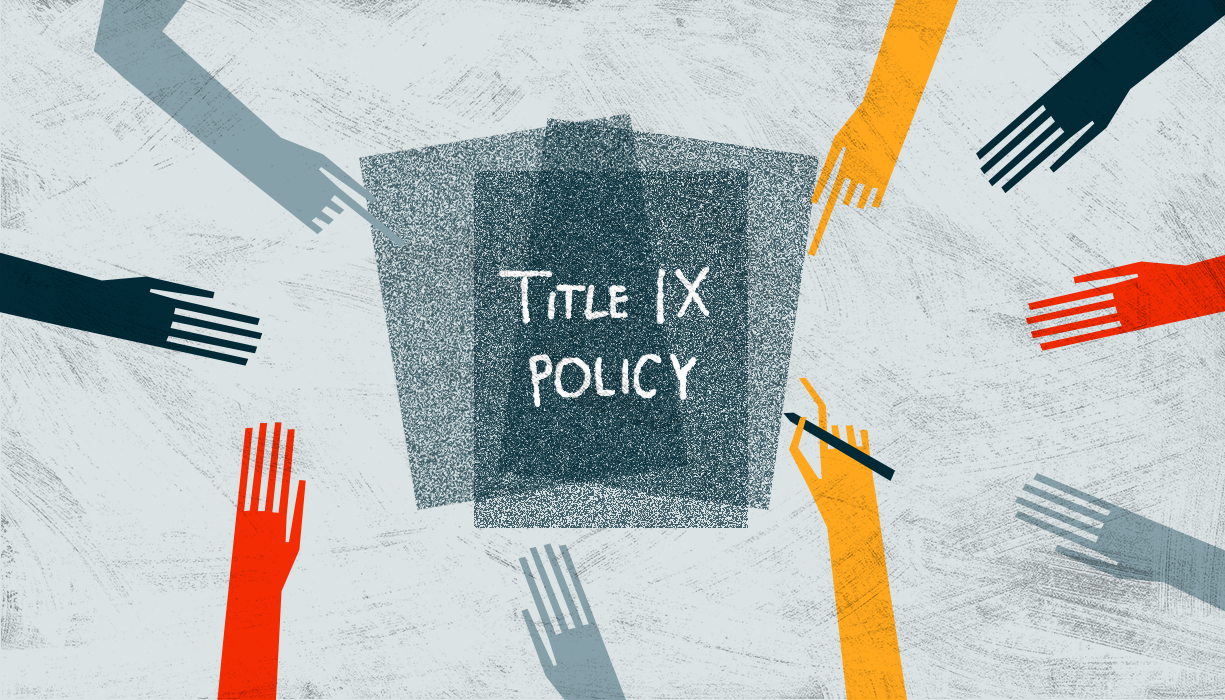Ten months after initiating a review into its policies regarding sexual misconduct, The New School released a proposed draft of its new Title IX compliance efforts on Sept. 25. The university is requesting feedback from New School community members via a confidential Google Form.
“In spring semester, we met with and listened to more than 500 students, faculty and staff in 14 separate listening sessions to better understand your experiences and concerns,” Rhonnie Jaus, the vice president of Equal Employment Opportunity, Affirmative Action, and Compliance, wrote in an email announcing the proposed changes to students and faculty.
University president David Van Zandt announced the Title IX policy review in an email on Dec. 11, 2017, along with the hiring of Jaus, a former New York assistant district attorney specializing in sex crimes and former Title IX Coordinator at Adelphi University. Jaus spearheaded the review with Jennifer Francone, The New School’s Title IX Coordinator and assistant vice president of Student Equity and Access.
The policy draft is available on the Student Conduct and Community Standards page of the university’s website.
Most notably, the proposed draft forbids “all romantic or sexual relationships between faculty or staff and students (graduate and/or undergraduate),” which The New School previously allowed.
According to the proposal, employees already in relationships like this must report their relationship to a supervisor immediately, and will face approval by senior administrators. Professors or faculty who do not disclose these relationships are at risk of losing their jobs, according to the proposal.
A section in the proposed policy on “hostile environment[s]” brings “unwanted and objectionable conduct”, including bullying, intimidation, and the use derogatory imagery and racial or sexual epithets, that “is severe, pervasive or persistent,” into the scope of Title IX.
The proposed policy removes a time limit for reporting complaints. Previously, complaints had to be reported no later than 60 days after the alleged incident.
While the proposed policy does not mention an appeal process, parties in a Title IX investigation can appeal at the end of the case. “Both the complainant and the accused have the right to appeal,” Jaus said in a statement to the New School Free Press.
The policy review came after The New School faced scrutiny for its investigation into Emanuele Castano, the former co-chair of the NSSR psychology department. Castano was investigated for his sexual misconduct regarding his relationship with an undergraduate student, which began when she was a freshman. According to the Stanford Daily, The New School did not complete the Title IX investigation because he resigned one day before the case’s completion.
Castano issued a summons against The New School on Sept. 9, informing the university of his intention to file suit for $10.35 million.
The Free Press contacted 150 students and faculty about the proposal. Four people agreed to be interviewed on the record.
Margot Bouman, a Parsons professor and co-director of the NSSR gender and sexuality studies program, said that many parts of the proposed policy, as well as Jaus’ efforts, are “admirable” and “important.”
“I’m still looking to see how one goes about making sure that this [harassment] doesn’t take place,” she said. She emphasized the difficulties of understanding the structural, legal, and cultural aspects involved in Title IX. She suggested clearer guidelines for reporting complaints.
Emmanuel Guerisoli, a PhD. candidate in sociology and history at NSSR, expressed concern over the the draft’s “hostile environment” section. He said it creates potential for third parties, like eavesdropping bystanders, to report situations of alleged bullying and discrimination that they aren’t directly involved in or lack context about.
The section “limits free speech” and enables a “heteronormative, white male, Anglo-Saxon type of culture,” Guerisoli said.
He said the hostile environment rules will make people “try and sound less radical” and “cautious about expressing any point of view.”
“In a way, we’re being sanitized,” Guerisoli said.
The Sex-E Collective, a student wellness group that promotes sex positivity and provides sex education, will host an event for students to review the proposed policy. The event is on Friday, Oct. 12 in the University Center’s Social Justice Hub, Room 513, from 7 – 9 p.m.
Toni Marie Conliffe, a student peer health advocate and spokesperson for the Sex-E Collective, said the event was inspired by the comments on a Sept. 28 Instagram post with images of Dr. Christine Blasey Ford, Anita Hill, and past university protests uploaded by The New School’s official account.
Grace Tarducci, a Lang sophomore, commented on the post that the proposed Title IX policy is “despicable” and “allows what happened to heroes Christine [F]ord and Anita [H]ill to continue happening and go unpunished.”
Tarducci said she has been assaulted twice at The New School and did not file Title IX complaints because of discouragement and fears of retaliation. “I know that nothing would’ve happened [if I reported],” she said.
Tarducci criticized repeated use of the word “intent” in the “sexual misconduct” section of the draft. She said that defining violating sexual misconduct as an intentional act is “ridiculous” and “creates the biggest loophole ever.”
“I feel that it would be pretty easy to prove that you don’t have the intent to harm,” Tarducci said.
Her experiences, she said, “make it clear to me that The New School doesn’t really care about whether or not survivors get support, and whether or not assailants are punished.”
Both Guerisoli and Tarducci said they submitted feedback to the Title IX Office through the Google Form.
Conliffe said she invited Title IX Office administrators via email on Sept. 26 to attend the upcoming Sex-E Collective event. In an email obtained by the Free Press, the Title IX Office wrote on Oct. 1 that “at this time, no one will able to attend this event.”
Illustration by Ashlie Juarbe







